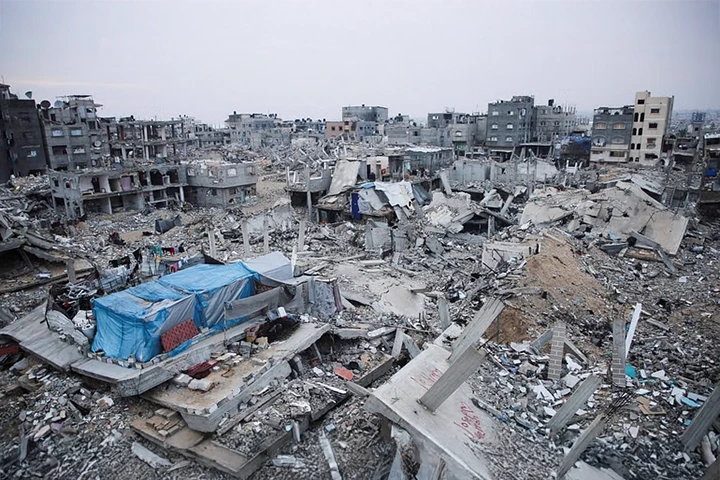India Backs Ceasefire as Israel-Hamas Conflict Persists
After months of escalating violence, the Israel-Hamas ceasefire was declared late Wednesday, providing a glimmer of hope for the war-torn Gaza region. Announced jointly by Qatar and the United States, the agreement includes a phased plan to release hostages and halt hostilities. However, Israeli Prime Minister Benjamin Netanyahu noted, “The ceasefire agreement with Hamas is still not complete,” casting uncertainty over the process.
Qatar’s Prime Minister confirmed that the ceasefire would commence on Sunday, with the first phase focusing on the release of 33 Israeli hostages. This phased truce aims to alleviate the humanitarian crisis, as echoed by U.S. President Joe Biden, who emphasized its step-by-step implementation.
The conflict, which began on October 7, 2024, was triggered by a surprise attack by the Palestinian militant group Hamas on parts of Israel. In retaliation, Israel launched intensified strikes on Gaza, leading to widespread devastation and a humanitarian emergency in the region.
India Calls for Dialogue and Humanitarian Aid
India’s Ministry of External Affairs welcomed the ceasefire announcement, calling it a significant step toward peace. In a statement, the ministry expressed hope for sustained humanitarian aid:
“We welcome the announcement of the agreement for the release of hostages and a ceasefire in Gaza. We hope this will lead to a safe and sustained supply of humanitarian assistance to the people of Gaza. We have consistently called for release of all hostages, ceasefire, and return to a path of dialogue and diplomacy.”
India’s consistent advocacy for dialogue underscores its commitment to peace and stability in the region. The ceasefire offers an opportunity to prioritize humanitarian relief, as thousands in Gaza face dire conditions.
Internal Tensions in Israel Over Ceasefire Deal
The truce has also highlighted internal divisions within Israel. Avigdor Lieberman, leader of the right-wing Yisrael Beiteinu party, criticized Netanyahu’s approach, accusing him of prioritizing political alliances over national security. Lieberman stated that Netanyahu blocked a single-stage ceasefire deal that would have ensured the release of all Israeli hostages at once. The phased nature of the agreement, he argued, was designed to preserve Netanyahu’s governing coalition.
This criticism underscores the political complexities surrounding the ceasefire, with questions arising about its long-term efficacy.
Can the Ceasefire Hold?
While the ceasefire offers a brief respite from violence, its success depends on sustained cooperation and goodwill from both parties. The phased release of hostages and humanitarian aid delivery are critical components of the truce, but geopolitical tensions and internal political challenges could derail the agreement.
India’s endorsement of the ceasefire and its call for diplomacy highlight the need for a collective effort to restore peace in the region. As the world watches, the question remains: Can this fragile truce pave the way for lasting peace in Gaza?
What are your thoughts on the ceasefire’s potential to bring lasting peace to Gaza? Share your views below!

